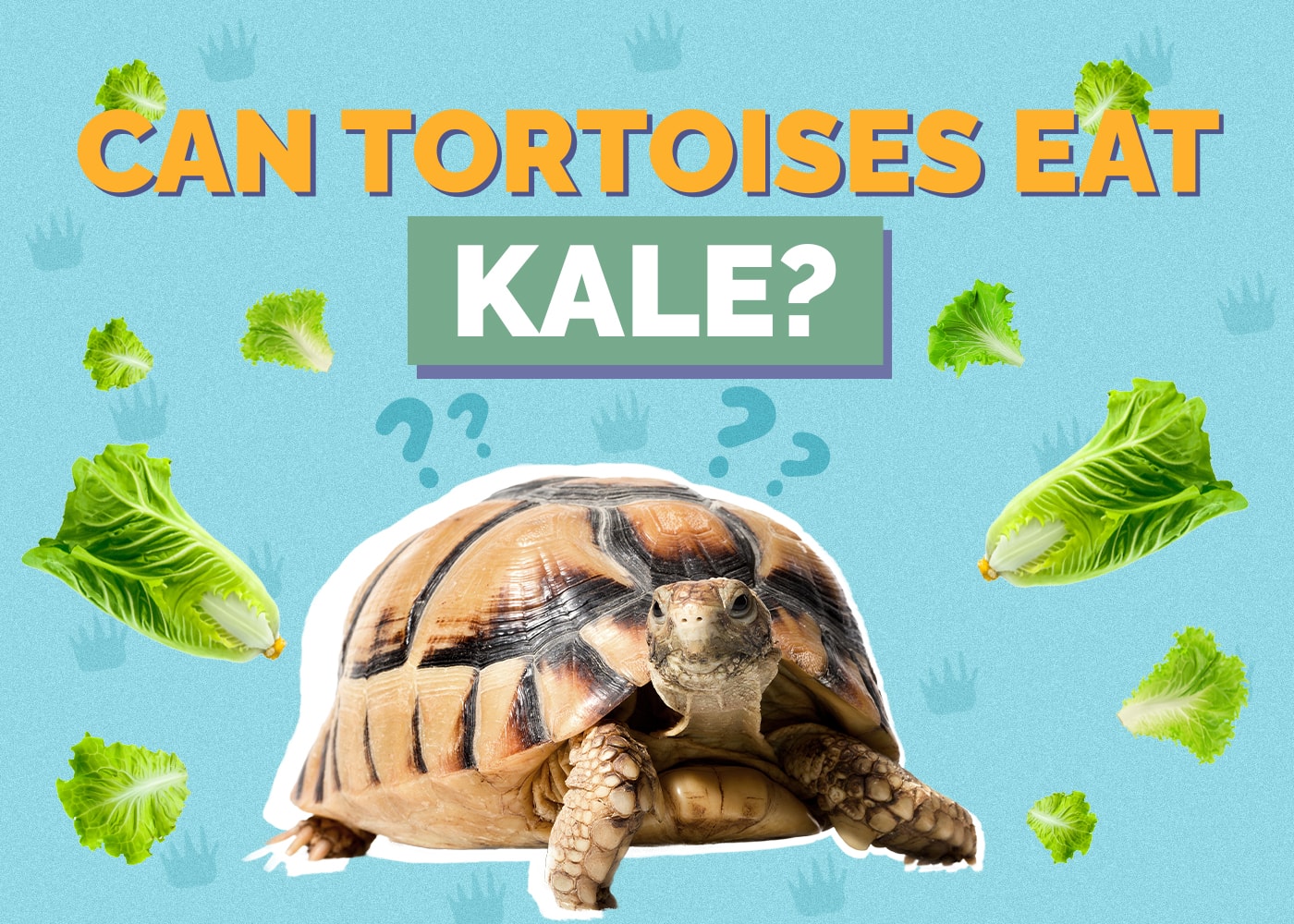Do Turtles Have Feelings or Show Affection? Tips, Facts & FAQ
By Ashley Bates
Updated on
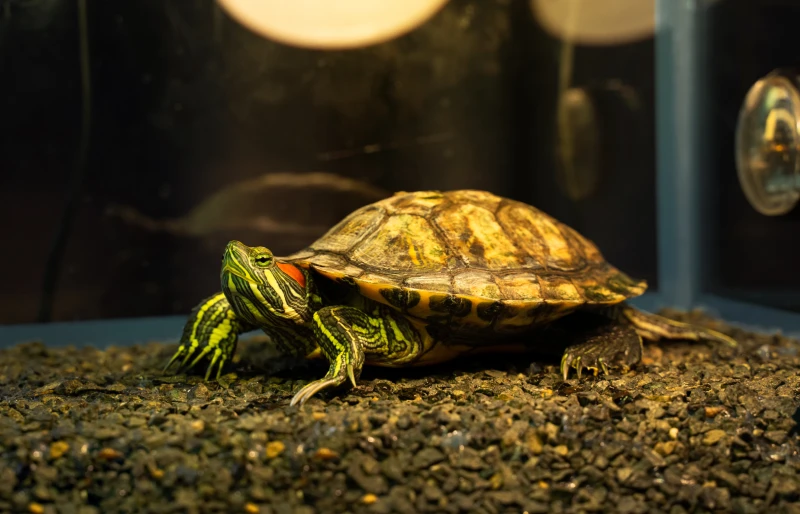
Reptiles work in a totally different way than mammals. They don’t respond to interactions in the same manner, so it can be hard to read their mind. What are they thinking?
If you love your turtle very much, you might wonder if they reciprocate some of that emotion. The truth is turtles don’t feel the same way that we do. However, they have their own ways of feeling affection and contentment.
What Exactly Are Turtles?
When you think of the word turtle, you might think of a reptile with a shell that you can find in the woods. You might not consider a tortoise or terrapin in the same category. But there are many different types of turtles, including both tortoises and terrapins.
Some turtles are omnivorous, and others are absolute herbivores. Some turtles live in water, and others live strictly on land. But one thing they have in common is that they can feel a broad spectrum of emotions and even physical sensations you might not think possible.
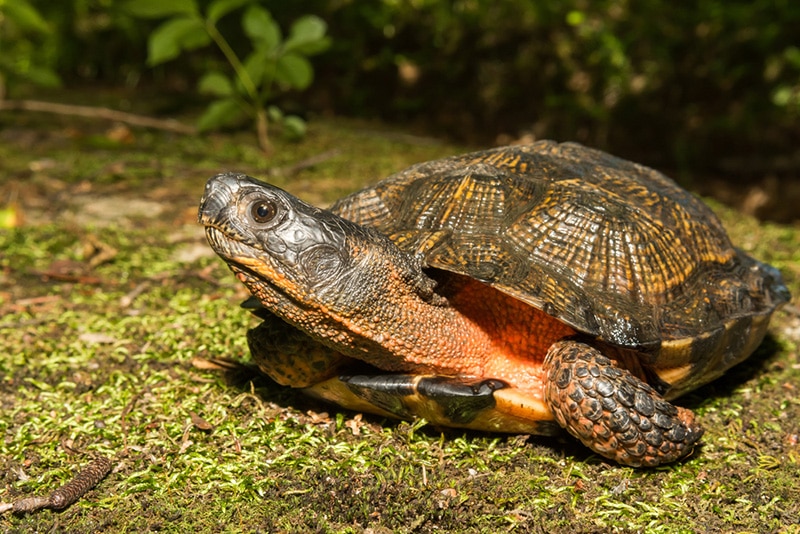
Turtles Can Feel Affection
All turtles can show affection in their own way. We must consider that turtles are reptiles and behave very differently from mammals like us. If you have a turtle for a pet, no matter what kind, you can develop a relationship with them.
They will grow to understand that you mean no harm, you feed them, and you give them pets that feel pretty darn good! While the senses and stimulation for a turtle are vastly different from our own, there are ways you can tell if a turtle is happy, stressed, upset, and otherwise.
Once you develop a specific bond with your turtle, you can pick up on these cues a lot better.
How Do Turtles Show Affection?
First of all, a turtle is not a dog or a cat. They won’t come running up to you when you get home with their little tails wagging. Instead, they will show signs of contentment. They won’t hide in their shells when they’re near or try to leave the space once you enter it.
They will simply feel relaxed and comforted in your presence. You might even hear some turtle owners talking about their pets requesting affection from them.
If a turtle stretches out their neck very long, they might want you to caress them. If they lean into your touch and close their eyes, it’s a surefire sign that they enjoy the attention.
Not only do they want reciprocated affection, but they don’t mind taking a treat or two, either. Your turtle might be waiting for you to hand them one of their favorite snacks!
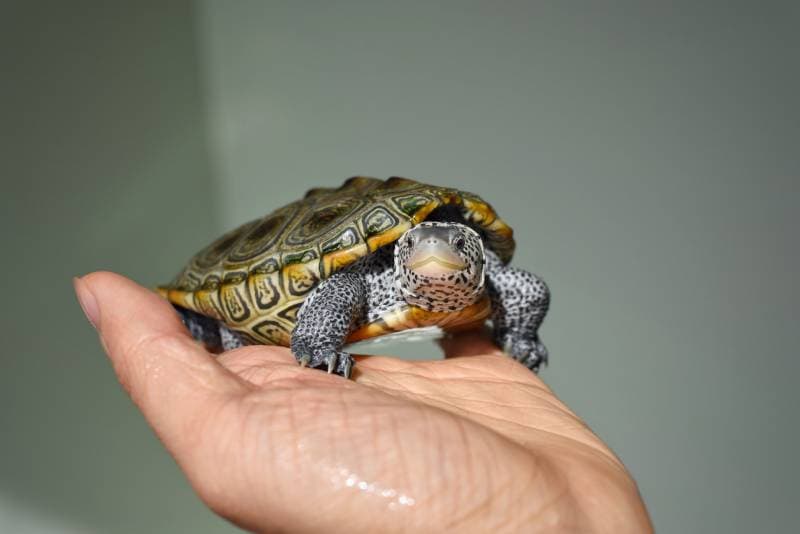
Do Turtles Feel Physical Touch?
You might understand that turtles feel physical touch on their soft skin, such as their legs and face. But do they feel anything in their shell? What might surprise you is that their shells are full of nerve endings.
While their shells don’t have the same sensory capabilities as their regular skin, they can still feel vibrations and touch through the shell. So, if you’re caressing their carapace, they feel it, and they might even like it very much.
How Do Reptiles Differ from Mammals Emotionally?
Humans and other mammals tend to have more complex emotions than reptiles. That isn’t because, in any way, we are superior to them. It simply means that our evolution requires a heavier emotional process than reptiles.
Most reptiles live alone and feed independently. Rarely, some turtle species will congregate together. Most generally, all reptiles enjoy having their own space and seeking out food by themselves.
Because they don’t have complex social structures in the wild, it makes connecting with humans the way that we perceive they should connect challenging. They simply aren’t hardwired that way.
However, turtles, along with any reptile, can feel base-level emotions and responses to environmental stimuli. They can feel things like pleasure, anxiety, and so on. They just didn’t evolve to require the same kind of social behaviors that mammals often do.
But just because they aren’t the most social animals doesn’t mean they are without feeling. Take a bobcat, for example. A bobcat is a mammal. Unlike house cats, bobcats prefer to live completely by themselves.
It is doubtful that you will ever see two bobcats in the same territory unless it is a mother with her babies. However, we are aware that bobcats can feel tremendous emotion. It is no different for a turtle. They simply show necessary responses to the fullest of their capability.
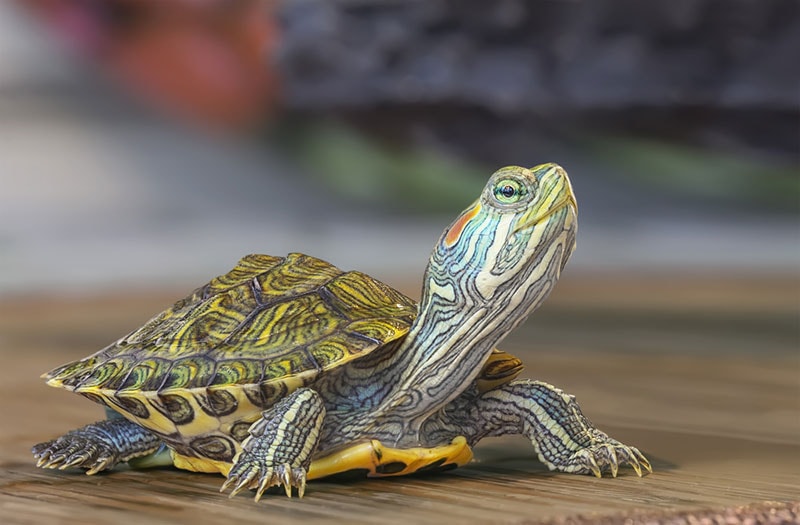
Do Turtles Get Attached to Owners?
Not only can turtles recognize their owners by sight, they can even form strong bonds with them. If you have a turtle, you might wonder if the way that you feel is reciprocated in any way. We encourage you to look at your turtle’s behavior.
If you just got your turtle, it might take them a minute to realize you are the one that cares for and feeds them. Once they realize they are safe with you and that you help meet their needs, they will start to form a bond with you.
You might have a friend or family member come over to the house. If your turtle sees them, they might act completely indifferently or even hide in their shell out of suspicion or fear.
However, when it’s just you and your turtle, they are probably curiously exploring their surroundings. They might even willfully come up to you with or without the motivation of a snack.
That is not to say that your turtle would miss you in the traditional sense that a dog or cat would if you rehome them. What it does mean is that when they are in your company, they feel calm and safe. Trust can strengthen any bond.
Do Turtles Remember Owners?
Turtles can remember their owners after a long time. For example, your turtle might not remember you if they only saw you after a few days.
Unlike dogs or cats with exquisite facial recognition, your turtle might get confused if they see multiple people in one household. It will be initially hard for them to discern which one of these many faces is their caretaker.
However, if you’ve been their main caretaker for several months or years, they will certainly remember who you are.
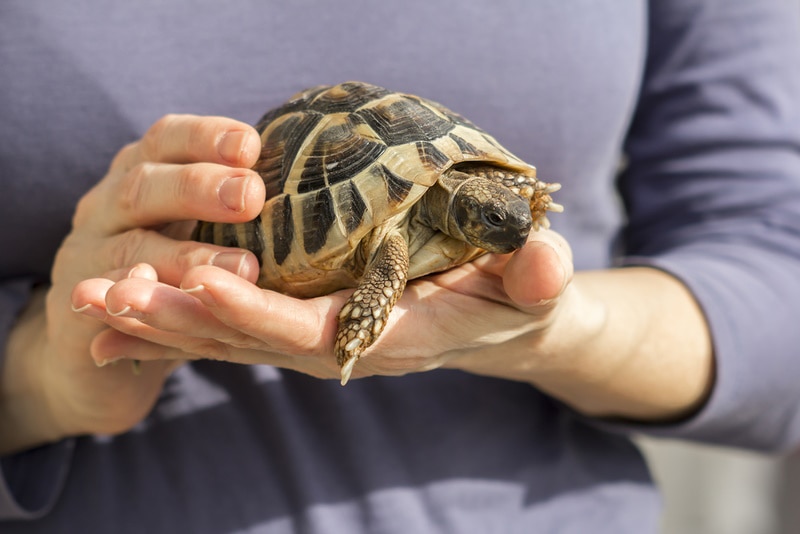
Turtle and Their Senses
How exactly do turtles perceive their surroundings? They use all of their senses to not only learn about their environment but to interact with their owners as well.
What Can Turtles See?
In terms of reptiles, turtles have quite good eyesight in most cases. They can notice bright colors and identify edible flowers and plants. Interestingly, a turtle’s vision is incredibly similar to that of humans.
So when you are around your turtle, understand that they are seeing you in a very similar way that you are seeing them.
What Can Turtles Feel?
As we mentioned earlier, turtles feel more than you think. Not only can they enjoy someone caressing their neck or legs, but they can also feel through the nerve endings in their shells. So, It might not be as noticeable, but it will certainly be detected.
How Do Turtles Smell?
Smell is one of the key identifying factors turtles have. They can easily recognize your smell when you’re around. So not only do they have very good vision to detect your presence, but they can become accustomed to your particular scent as well.
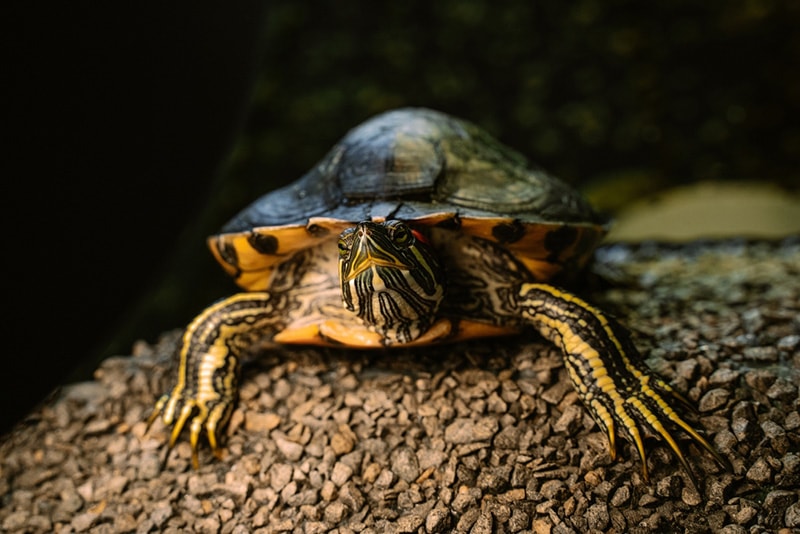
How to Bond with Your Turtle
If you want to bond with your turtle, you can do so! The more time you spend with them, the more they will understand your role in their lives. For example, you can get them out and let them roam around the same space you are in.
You can hand feed them and offer them regular snacks to show that they can trust you for their survival needs. And you can talk in a soothing voice so they get used to these calming tones.
Also, the better you take care of your turtle, the more they will bond with you.
This includes:
- Keeping their enclosure clean
- Providing consistent water and food
- Offering frequent turtle-friendly snacks
- Respecting your turtle’s boundaries
Conclusion
Now every time you get your turtle out of the enclosure or interact with them, you know you’re one step closer to building a lifelong bond. Your turtle can not only recognize you, but they can also feel excitement when they see you and look forward to interacting with you.
If you just got your turtle, spend all the time with him you can, too, and develop that special relationship.
Featured Image Credit to: Liubov Sydorenko, Shutterstock

